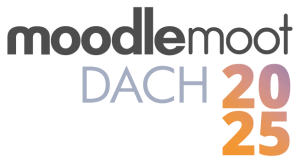MoodleMoot DACH 2025
Robot
Tools and Techniques to Thrive in Academic Life
Navigating student life involves more than just attending classes and passing exams. One of the most crucial components of academic success is the ability to express ideas clearly and effectively in writing. Whether it's a reflective essay, a persuasive term paper, or a comprehensive research project, the way students present their thoughts can significantly influence their grades and their overall learning experience.
The foundation of strong academic writing lies in preparation. Before putting pen to paper—or fingers to keyboard—students should take time to understand the assignment thoroughly. Knowing the requirements such as topic scope, citation style, and word count helps eliminate uncertainty and allows for more focused work. Clear instructions often include keywords or phrases that guide your writing structure and tone, so overlooking them can result in missing the mark entirely.
Once the task is clear, research becomes the next critical step. Effective research involves more than just skimming the top results on a search engine. Students should seek out peer-reviewed journal articles, books, and official sources to back up their arguments with credible evidence. Proper note-taking during this phase helps avoid accidental plagiarism and simplifies the process of citing sources later on. Building a strong base of information allows for deeper analysis and a more persuasive argument.
Planning is essential to organize information and thoughts. Creating a detailed outline serves as a blueprint for the writing process. Start with a strong introduction that introduces the topic and states the main thesis. The body should be divided into logical sections, each focusing on a single idea supported by evidence and a list of great topics examples. Lastly, the conclusion should tie everything together and leave a lasting impression without simply repeating earlier points.
While drafting, students should aim for clarity and cohesion. Academic writing doesn’t mean overly complicated language. In fact, the most effective writing is often straightforward and concise. Each paragraph should logically follow the previous one, maintaining a consistent tone throughout. Sentence structure, vocabulary, and even punctuation play roles in how the content is received by the reader.
Revision should never be overlooked. After completing a first draft, students benefit greatly from stepping away before reviewing their work with fresh eyes. This break helps to identify awkward phrasing, weak arguments, or structural issues. Editing is not just about correcting grammar or typos; it's about refining ideas and improving flow. Reading the work aloud can also help catch errors that silent reading might miss.
Technology can support the writing process in meaningful ways. The best laptops for students are those that combine performance, portability, and long battery life—allowing for productivity whether you’re in the library, at a café, or attending a lecture. Investing in a reliable device ensures you can research, draft, and revise without frustrating interruptions or technical issues. In addition, apps for time management, grammar checking, and citation generation are valuable tools for staying organized and producing polished work.
Writing is not only essential for academic purposes. Being a skilled writer can be helpful in other important student milestones. For instance, preparing graduation speech ideas draws on many of the same techniques used in essay writing. From planning an outline and crafting a compelling introduction to delivering a meaningful conclusion, the skills are transferable and valuable in real-world settings.
Another area where writing plays a pivotal role is in scholarship applications. Students often need to craft personal statements or motivation letters, particularly for financial aid or best laptops for students programs offered by educational institutions. In these documents, clarity, authenticity, and structure can strongly influence selection committees. Therefore, honing academic writing skills contributes not only to better grades but also to broader educational and financial opportunities.
Ultimately, writing well is a skill that improves over time with consistent practice and feedback. Students should seek support from writing centers, peer reviewers, or professors to refine their abilities. Embracing writing as a critical component of academic and personal development will pay off throughout their educational journey and beyond.
